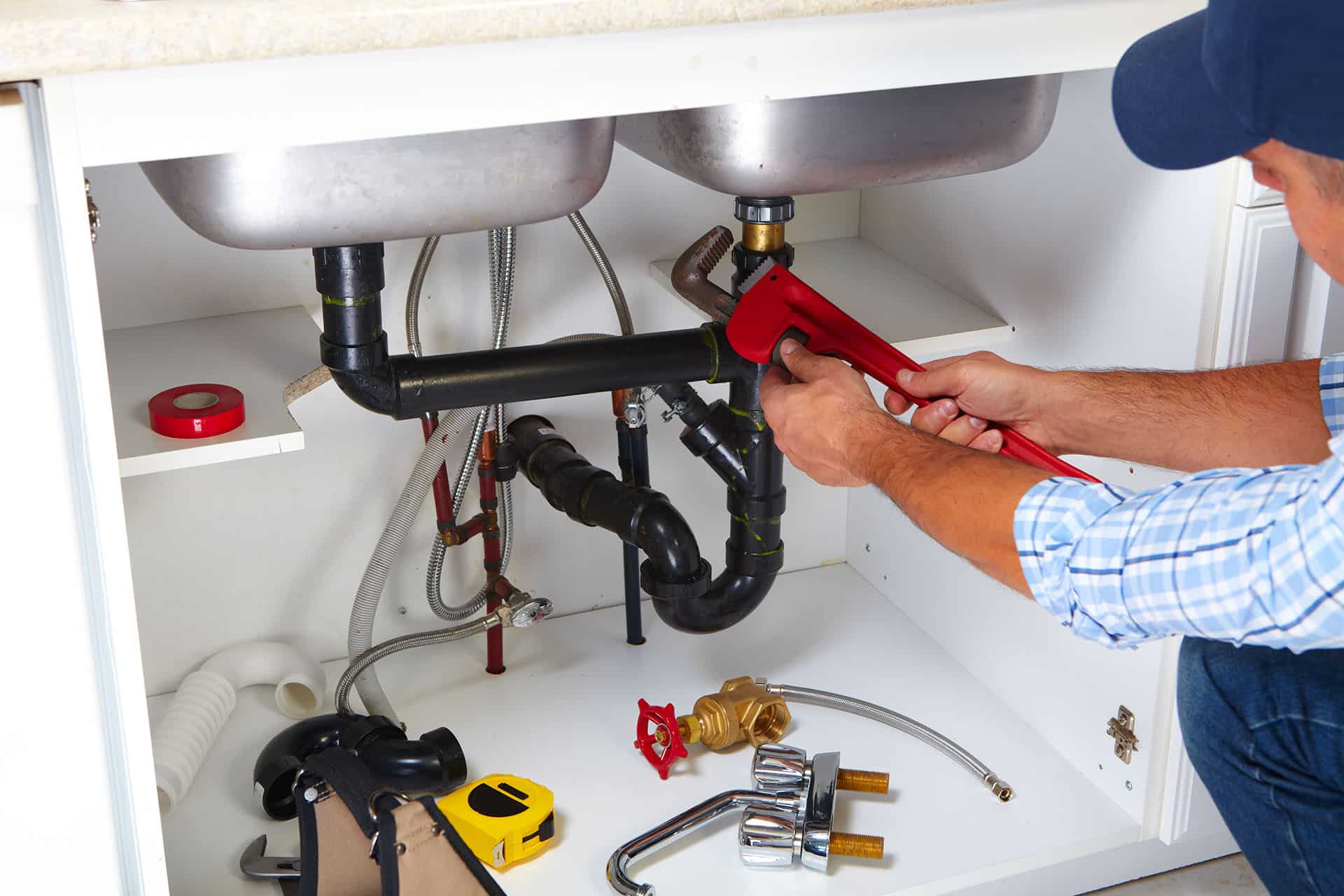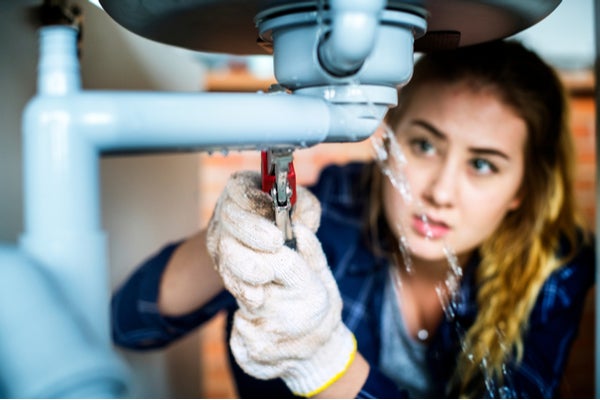Could You Possibly Damaging Your Plumbing? Six Critical Indicators
Could You Possibly Damaging Your Plumbing? Six Critical Indicators
Blog Article
We have uncovered this article on Leak Detection and Repair Without Destroying Your Home down the page on the web and figured it made perfect sense to write about it with you on this site.

The key to durable devices, unsurprisingly, appertains upkeep. There's no set policy that can ensure your plumbing home appliances a long wear, but you can stop unneeded damage as well as fixings by avoiding bad plumbing habits.
You need to stop doing these 6 things else you'll maintain calling your plumber over for minor faults.
Purging whatever
Yes, your toilet drainpipe causes the sewers, yet that doesn't suggest you must dump simply anything down the drain. Many 'flushable' products are really fantastic obstruction beginners, for instance floss. Asides keeping noticeable non-flushable materials like cables and also plastics out of your toilet, you must additionally avoid flushing cotton buds, menstruation items, wipes, daipers and also condoms down the toilet drain.
Pouring grease in the sink
We know appropriately dealing with grease after a hearty meal is a pain. But simply pouring it down the drain can do long-term harm to your pipes. "The fat and also oil can block your drain severely enough to force you to call a plumber," explains Dawson. "Plumbing functions best when it's well taken care of-- not abused with grease."
Using way too much drainpipe cleaner
Utilizing a drainpipe cleaner greater than once or twice a month is an indicator that something severe is taking place within your pipes. Now, rather than encountering the main concern, you choose a quick fix; a carbonated drainpipe cleaner. Rightfully, a drain cleaner will take care of the obstruction, but at what expense?
The chemicals in a drainpipe cleaner can accelerate the corrosion of your pipes. Include that to whatever underlying problem is causing the blockage and also you may have to a severe trouble on your hands.
If you experience too many blockages, call your emergency plumber as opposed to using a drainpipe cleaner.
Not washing recipes prior to loading them right into the dishwasher
it's called a dishwashing machine, however tossing in dishes, pots, and pans covered in huge food fragments can in fact trigger some severe damage to the appliance, leading to long-term troubles down the line. "Home owners might have to obtain their dish washer repaired more often if they do not rinse their recipes before loading, or at the very least eliminate bigger food items," explains Audrey Monell, proprietor of Forrest Anderson Plumbing and Air Conditioner in Glendale, Arizona. "Food that gets stuck on recipes causes the dish washer to work harder, which can wear down parts much faster, resulting in issues."
DIYing every little thing
With plumbing, a stitch in time truly does conserve 9. You can prevent a fullblown plumbing emergency by calling your plumber at the correct time.
You may have discovered a couple of plumbing hacks from your papa, but you should understand where to draw a line and also call a specialist. For example, you may be able to repair a blockage yourself, but you shouldn't try to transform a pipeline. You can inequality pipes or overtighten a bolt, causing more injury and also damages than you believed. Calling a plumber is a safe and budget-friendly decision.
Not changing your dishwashing machine tubes
One simple method to make certain that you use your dish washer for several years is to replace the hose at the very least as soon as in five years. This additionally requests cleaning device pipes.
In time, food fragments, soap as well as oil can form blockages within your pipes. Replacing them on time will protect against any presure develop that can harm the inner workings of your dishwashing machine or washing device.
An enhanced steel braided hose does a wonderful job of prolonging your device's use time.
No wintertime preventative measures
Severe climate condition misbehave for your pipelines, particularly if they're made from steel. You must insulate your subjected pipelines, as well as your water storage tank, even if you have a water heater. You should additionally shut off your garden hose shutoff as well as any other external water channels. These channels are electrical outlets for chilly; you pipelines can begin to freeze from outdoors if you don't.
Ways That Hard Water Affects Your Plumbing And Appliances
CLOGGED DRAINS
Calcium and magnesium from hard water go beyond the drain screen that you clean. Each time water passes through the drain screen, the minerals attach to the sides of the pipes and other hard water deposits. As you continue to use the drain, more of the minerals attach to these deposits, eventually clogging the drain. Most drain cleaners remove only a small amount of the minerals, so the drain continues to run slow and back up water in your sinks, tubs, and showers.
DECREASED WATER FLOW
Do you have a faucet that runs slow even when you increase the water flow at the valve? Hard water deposits not only affect how water runs out of your home but also how water is delivered to your faucets. When calcium, magnesium, and minerals build up in pipes, it slows the flow of water and also builds up pressure inside the pipes that causes a backflow of water.
CORROSION
Calcium and magnesium have properties that are destructive to certain types of metal, many of which are used for plumbing in older homes. The minerals slowly break down the metal in your pipes. This can cause leaks, breaks, and even discolored water. If the corrosive section of the pipe is not repaired and the hard water deposits removed, entire sections of your plumbing may disintegrate. You may end up replacing a large portion of your plumbing system. Corrosion can happen on any metal surface, not just your pipes. Calcium and magnesium can also cause corrosion on your faucets, drains, valves, appliances, and fixtures.
REDUCED WATER QUALITY
You rely on your plumbing system to deliver clean water for cooking, washing your clothes, bathing, and many other daily tasks. Hard water has small particles of minerals in it. The water is safe to drink, but it is not ideal for your appliances. The minerals interfere with how soaps and detergents work to remove dirt, food, oils, and other substances. As a result, you must use more cleaning products, and your appliances have to work harder to clean dishes and clothes.
BROKEN PIPES AND LEAKS
Broken pipes and leaks from hard water happen in two ways. First, hard water is corrosive to the materials that are used in older homes. Eventually, minerals eat through the pipe and create a small opening in the side of the pipe. The opening grows larger and larger until you have a major leak on your hands. Second, the mineral deposits inside the pipes prevent water from flowing through efficiently. If the water is pushed through the plumbing at the same volume, pressure builds up, and eventually, the pipes and connections fail.
ENERGY EFFICIENCY
Hard water and mineral deposits in your plumbing affect the energy efficiency of your appliances, even the older models that do not meet modern standards. When you find a white residue on your dishes or your clothes don’t feel clean, you may find yourself running the wash cycle a second time. This requires more energy use and raises your utility bills. Some newer high-efficiency models of dishwashers and washing machines have sensors that detect when items are clean. Hard water deposits on the dishes or clothes will trigger the sensors and cause the appliance to run longer.
Another way that hard water affects your budget is the investment you make in products for hard water deposits. Rather than spending your money on higher utility costs and household products, invest in a water softening system from Beyer Plumbing Co. to prevent the problems of hard water.
WEAR AND TEAR
Hard water deposits build up on the connections, drains, and jets in your washer or dishwasher that circulate the water and clean your clothes and dishes. As a result, water may collect inside your appliances, creating the ideal environment for corrosion, mold, and other damaging substances. The components break down sooner, and your appliances may not last as long as expected. In some cases, the lifetime of an appliance may be reduced by three or four years simply due to hard water deposits. Using soft water in your appliances ensures that you get the maximum return on your investment.
https://beyerplumbing.com/9-ways-that-hard-water-affects-your-plumbing-and-appliances/

We had been made aware of that report about Leak Detection and Repair Without Destroying Your Home through a good friend on another site. Sharing is nice. You never know, you may be doing someone a favor. Thank you so much for your time invested reading it.
Here Report this page